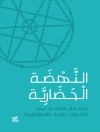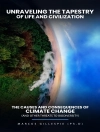Participatory Planning for Climate Compatible Development in Maputo, Mozambique is a practitioners’ handbook that builds upon the experience of a pilot project that was awarded the United Nations ‘Lighthouse Activity’ Award.
Building upon a long scholarly tradition of participatory planning, this dual-language (English/Portuguese) book addresses crucial questions about the relevance of citizen participation in planning for climate compatible development and argues that citizens have knowledge and access to resources that enable them to develop a sustainable vision for their community. In order to do so, the author proposes a Participatory Action Planning methodology to organise communities, and also advances mechanisms for institutional development through partnerships.
Praise for Participatory Planning for Climate Compatible Development in Maputo, Mozambique
‘This English/Portuguese book is an example of how participatory planning, which puts citizens at the heart of community improvement, can facilitate local responses to climate change challenges. Focusing on the partnerships between governments and communities in Maputo, Mozambique, this bilingual compilation highlights key lessons of climate compatible development for urban managers, practitioners, academics, policy makers, citizens and activists.’
Environment and Urbanization Journal
‘The book ‘Participatory Planning for Climate Compatible Development’ advances a key argument concerning the need to involve urban citizens in local action for climate adaptation.’
Climate and Development Knowledge Network (CDKN)
‘This book is a guiding light for planners, communities and anyone concerned with climate change in our cities. It will join a growing but still limited collection of studies and is likely to become an important guide to living in our climate-changed present. Participatory action planning might not be the only way to involve urban residents in addressing this new landscape, but it offers a deeply considered approach that is needed across Maputo and cities more widely.’
Africa at LSE Book Reviews
‘This book is a guiding light for planners, communities and anyone concerned with climate change in our cities. It will join a growing but still limited collection of studies and is likely to become an important guide to living in our climate-changed present. Participatory action planning might not be the only way to involve urban residents in addressing this new landscape, but it offers a deeply considered approach that is needed across Maputo and cities more widely’
University of Sheffield Urban Institute blog
Содержание
Foreword by Christiana Figueres, UNFCCC Executive Secretary
Acknowledgments
Introduction
1 Incorporating Climate Change Knowledge in Participatory Planning
2 Co-constructing CCD Knowledge through Participatory Action Planning
3 Building Partnerships for Climate Compatible Development
4 Conclusion and Ways Forward
References
Index
Об авторе
Domingos Macucule teaches planning at the Universidade Eduardo Mondlane, Maputo, Mozambique. His research studies processes of urban governance in peri-urban settlements in Maputo.












